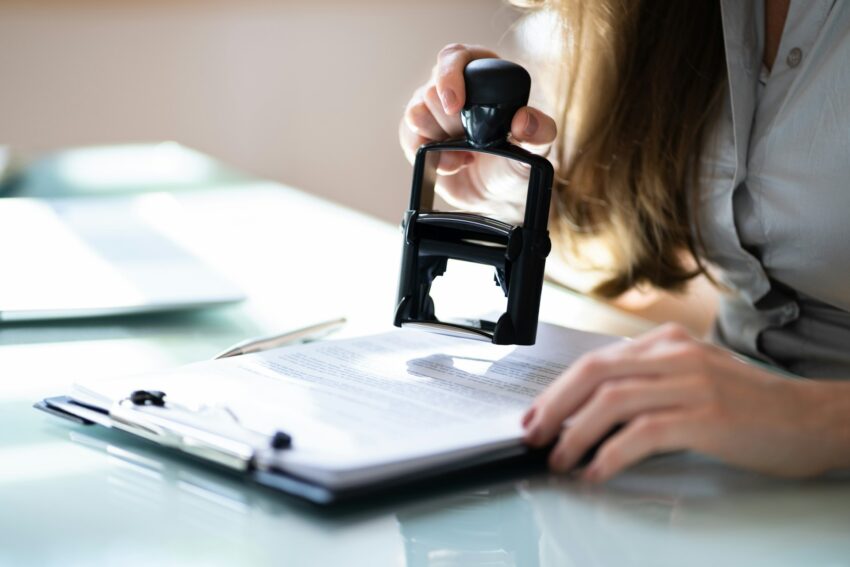Ever been told you need to “get something notarised” and had no clue what that actually means? You’re not alone. It sounds official – and it is – but it’s not as complicated as people make it out to be.
A notary public plays a key role in making sure legal documents are trustworthy. But when do you actually need one? And what do they really do beyond stamping a piece of paper?
So, What Is a Notary Public?
A Notary of Public is someone legally authorised to witness the signing of important documents. They’re there to make sure everything is above board – no funny business, no fraud, and no one being pressured into signing something they don’t understand.
Think of them as a neutral third party. They’re not there to give advice or pick sides. Their job is to confirm the identity of the person signing, make sure they’re signing willingly, and then apply their official seal to the document to certify that it’s legitimate.
They’re often lawyer, too, but not always. What’s important is that they’ve been appointed and registered to act in this role under the law.
What Exactly Do They Do?
Notaries don’t just witness signatures. Their job involves several tasks, depending on what’s needed. Some of the most common include:
- Verifying identity – Making sure the person signing is who they say they are.
- Confirming willingness – Ensuring no one is being forced or tricked into signing.
- Administering oaths – Sometimes, people need to swear something is true. Notaries can oversee this process.
- Certifying true copies – Need a certified copy of a passport or driver’s licence? That’s something they can do.
- Preparing and notarising documents – They can draft or verify legal documents for overseas use.
- Authenticating documents – When something needs to be recognised in another country, a notary can confirm its validity.
Some documents are meant to be legally binding across borders. In those cases, you’ll often need a notary’s stamp to make sure it’s accepted overseas.
When You’ll Actually Need One
If you’ve never needed a notary, it can be a bit of a mystery when they come into play. Here’s when people usually end up needing one:
1. Sending Documents Overseas
Whether you’re applying for a job, enrolling in a foreign school, or managing legal matters abroad – documents like qualifications, ID, or contracts often need to be notarised so they’ll be accepted in other countries.
2. Buying or Selling Property Overseas
Handling real estate across borders? You’ll likely be asked to sign and notarise contracts, declarations, or power of attorney documents before they’re accepted by international authorities.
3. Statutory Declarations and Affidavits
These are official statements used for legal or formal purposes. If they’re going overseas, or if someone insists on a notarised version, you’ll need a notary to witness and stamp it.
4. Making Certified Copies
Say you’re applying for a visa and need a certified copy of your ID or passport. A notary public can provide a copy that’s recognised as an official, legally acceptable duplicate.
5. Granting Power of Attorney
Let’s say you’re giving someone authority to act on your behalf – maybe to handle property or legal matters in another country. That kind of document often needs notarising to be valid.
6. Business Documents for Overseas Use
If you’re running a business and need to send company documents, contracts, or certificates abroad, they’ll often need to be notarised to prove they’re legitimate and correctly executed.
Not the Same as a JP
A common mix-up? Thinking that a Justice of the Peace (JP) can do what a notary does. While both can witness documents, a notary public is recognised internationally. That’s the big difference.
JPs are great for local matters, like signing a statutory declaration for government use, but they’re not accepted overseas. If your document is going outside the country, you’ll need a notary.
What About Apostilles and Legalisation?
Sometimes, just getting something notarised isn’t enough. Some countries want extra assurance that your notary is legitimate. That’s where an apostille or legalisation comes in.
Apostille
This is a certificate that confirms the notary’s signature and seal are real. It’s used for countries that are part of the Hague Convention.
Legalisation
For countries that aren’t part of that group, the document may need to go through the consulate or embassy for official approval.
Your notary will usually guide you through this part if it’s needed. Just don’t be surprised if there’s a second step after notarisation.
How to Prepare Before You Go
To avoid delays, there are a few things worth sorting out before your appointment:
- Bring valid photo ID – Usually a passport or driver’s licence.
- Know what you’re signing – You need to understand the document.
- Don’t sign in advance – The notary needs to witness the actual signing.
- Check if anything else is needed – Apostille? Extra copies? Ask before you go.
If you’re unsure what the document is or what it means, it’s a good idea to get legal advice first. The notary can’t explain or interpret it for you; their job is to witness, not advise.
It’s More Than Just a Stamp
A notary public does a lot more than just press a seal onto a page. They’re a key part of making sure international legal processes run smoothly. Whether it’s a job overseas, a property transaction, or just certifying your passport copy, their role is all about trust and legal certainty.

